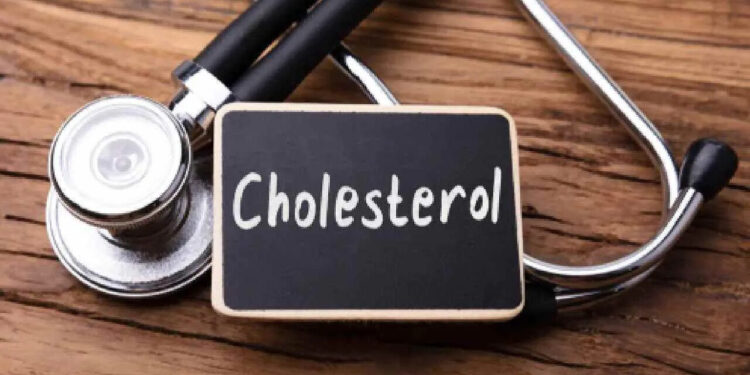Maintaining heart health requires controlling cholesterol levels, and although high LDL (low-density lipoprotein) cholesterol is frequently invisible, it can show up in ways that interfere with day-to-day functioning. Elevated cholesterol levels are sometimes invisible, which is why they are also referred to as the “silent killer.” Breathlessness, keg cramps, and other symptoms, however, could be signs of high cholesterol.
- Shortness of Breath: If you find yourself becoming unusually breathless during a walk, it could be a sign of high LDL cholesterol affecting your heart and blood vessels. Elevated LDL levels can lead to the buildup of plaque in the arteries, which narrows them and restricts blood flow. This means your heart has to work harder to pump blood, especially during physical activity. If you notice that you’re struggling to catch your breath more than usual, it might be time to consult with a healthcare professional.
- Leg Cramps: Claudication, or pain and cramping in the legs while walking, can be a symptom of peripheral artery disease (PAD), often associated with high LDL cholesterol. When cholesterol levels are elevated, plaque can build up in the arteries that supply blood to the legs, leading to reduced blood flow. This can cause pain, heaviness, or cramping in the legs, especially during physical activity. If you experience leg discomfort that improves with rest, it’s advisable to discuss this with your doctor.
- Coldness in Extremities: If your hands and feet feel unusually cold, particularly during or after walking, it may indicate poor circulation due to high cholesterol levels. When arteries are narrowed, blood flow to the extremities can be compromised, leading to a sensation of coldness. If you notice this symptom frequently, it’s important to have a conversation with a healthcare provider to assess your cholesterol levels and overall vascular health.
- Fatigue or Weakness: Feeling unusually fatigued or weak during a walk could be linked to high cholesterol levels affecting your overall cardiovascular health. When your body struggles to pump blood effectively due to narrowed arteries, you may experience decreased stamina. If you find that you tire easily during activities that once felt effortless, this could signal a need to check your cholesterol levels and overall heart health.
- Chest Pain or Discomfort: Experiencing chest pain or discomfort while walking can be alarming and should never be ignored. High LDL cholesterol can contribute to atherosclerosis, a condition where arteries become narrowed due to plaque buildup. This can lead to angina, a type of chest pain that occurs when the heart muscle doesn’t get enough blood. If you feel pressure, tightness, or pain in your chest while walking, it’s essential to seek medical attention immediately to rule out serious conditions.
For a comprehensive assessment, think about speaking with a healthcare provider if you encounter any of these symptoms. Controlling cholesterol levels and safeguarding your heart health can be achieved through early identification and lifestyle changes, such as diet and exercise.
Source: In








 Finance
Finance






